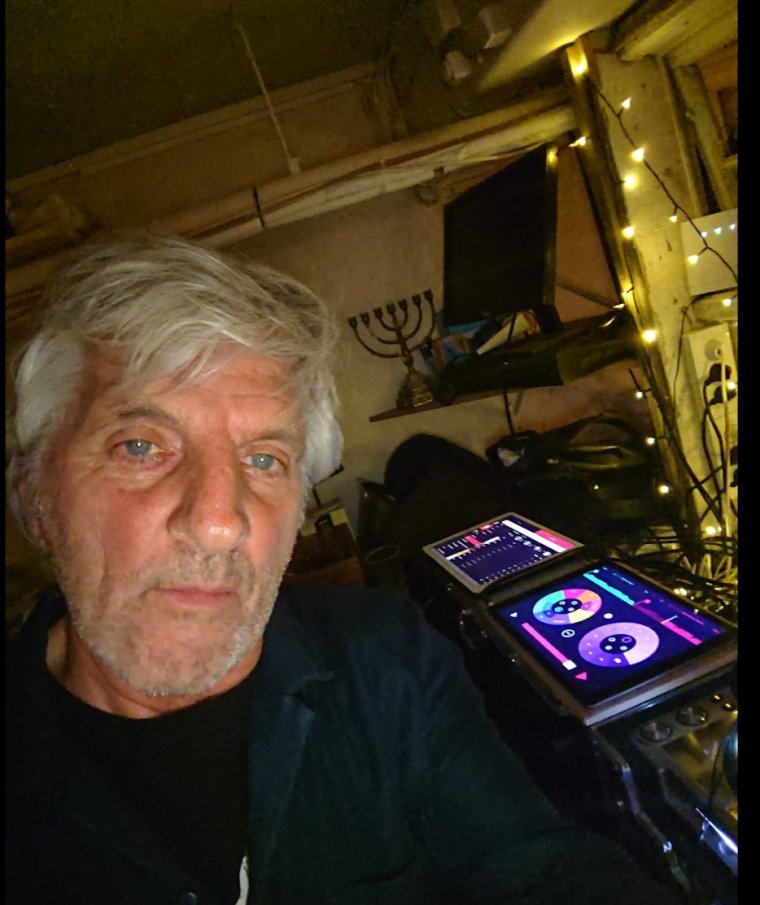Danish culture values leisure – which is how it should be, says expat Steve Williams
A 69-year-old British DJ who has lived in Denmark for nearly 50 years has described how day-to-day life in Scandinavia runs far better than in the UK, where Covid-19 and Brexit have “drained” people’s energy.
Steve Williams has lived in Copenhagen since 1978 and now has two sons.
He began his career aged 16, when he was living in Cardiff. He was at a party when the DJ fell ill and Williams covered for him. From there, he began working at nightclubs around Cardiff after he hit 18, before being scouted aged 21 by a Scandinavian DJ who invited him to play in Copenhagen.
“It was an offer I really couldn’t refuse,” says Williams. “The pay was substantially more, both countries were in the European Union making legally settling easier, and I needed a change of scenery.”
He has now been resident in the “City of Spires” for 47 years and says he is glad he left Britain. He says he is now used to the Danish way of life and has raised two sons in the city.
In Denmark, basic services and infrastructure are of far higher standard than in the UK, he says. He appreciates Copenhagen‘s low crime rates, high-quality healthcare and food culture in particular.

“Hands down services are miles better here,” he says. “I know we pay higher taxes, but the benefits are immeasurable. Everything functions. Public transport works like clockwork, the parks are the cleanest I’ve ever seen and the healthcare and education are second to none. I’ve never met an uneducated Dane.”
He also says the more relaxed culture in Scandinavia, where leisure is valued, is “how it should be” – unlike in Britain.
“As far as work goes, they choose shorter hours and there’s a generous vacation time included. The Danish culture values leisure, so when you have those combinations they seem to understand that we don’t have to work all the time because life, after all, should be lived and they choose to do it by having long holidays, which is how it should be.”
He adds that the fairer system overall meant people could afford to take extra time off, “and that’s basically how the holidays situation is worked out for many years. Most Scandinavian countries follow this way of thinking.”
This year Copenhagen replaced Vienna at the top spot of the Global Liveability Index from the Economist Intelligence Unit, thanks to high scores for healthcare, education, infrastructure and culture.
Williams still travels back to Britain, but says he has recently noticed a change for the worse in the country.
He describes “how grey everything seemed”, adding: “I think the UK has been hit by so many things recently, with Covid and Brexit, that it seems to have drained the lifesource and energy. I felt a certain gloominess when I was there last year that I can’t seem to find in Copenhagen. It treats its residents well, which I’m not sure if the UK does.”
However, his first couple of years in Copenhagen there were a huge readjustment, he says.
“I had to get used to a new environment and culture completely and really felt that being a DJ helped me to understand that, as I had to read the room and by doing so, read people,” he says.
The locals were intrigued by him at first, he said, and his job helped him integrate more easily than people who moved to pursue other professions.
“People tend to want to get to know the DJ,” he adds. “That helped me feel part of the community.”
However, he notes the long winters and learning Danish as challenges.
Today, Williams DJs predominantly at weddings (he has played at over 2,500) – but he would like to get “back into” playing for wider audiences, he says.
“I’m working for myself now as a freelancer, so I take work as and when I need it… I can’t see myself stopping as I approach 70,” he adds. “ It’s maybe cliché but it’s really just a number.”
